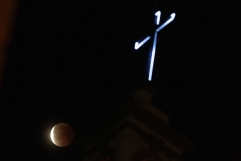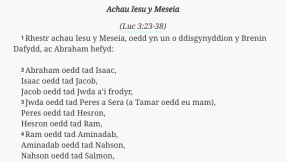How old is the earth? Nearly 14 billion years, if the astronomers and physicists are to be believed. But according to the 17th-century Archbishop of Armagh, it was created much, much later.
Archbishop James Ussher, who died today in 1656, was responsible for calculating the date on which the world was created. He arrived at the year 4004 BC, and even fixed on a date – October 23.
He has been much mocked for being so precise, and even young-earth Creationists who believe in a literal interpretation of the first chapters of Genesis aren't usually so definite, usually saying the world is a few thousand years old rather than a few billion.
However, Ussher was no fantasist. He lived just before scientific method was becoming established and a long time before Darwin. He used the information he had to reach what he thought was a reasonable conclusion – and he devoted considerable brain-power to it. His calculations cover more than 100 pages in the original document – in Latin, too.
Ussher was not the only person to have estimated the age of the earth from the biblical record. The Venerable Bede suggested 3952 BC, while Sir Isaac Newton also had a go, suggesting 4000 BC. Ussher used material in the Bible like the ages of the Patriarchs and the length of kings' reigns, but he also tried to relate these to external dates like the death of Nebuchadnezzar. He anchored his chronology to the final deportation of Judah in 584 BC. He thought the Creation was in the autumn because that was the Jewish New Year, and used Kepler's astronomical tables to establish the autumnal equinox.
His chronology became popular because it was included in King James versions of the Bible, including the influential Schofield Reference Bible.
As scientific knowledge expanded and it became harder to justify a literal reading of the early chapters of Genesis, Ussher fell out of favour. However, the eminent scientist Stephen Jay Gould – while he obviously disagreed with him – wrote: "I shall be defending Ussher's chronology as an honorable effort for its time and arguing that our usual ridicule only records a lamentable small-mindedness based on mistaken use of present criteria to judge a distant and different past." He wrote that Ussher "represented the best of scholarship in his time".

















